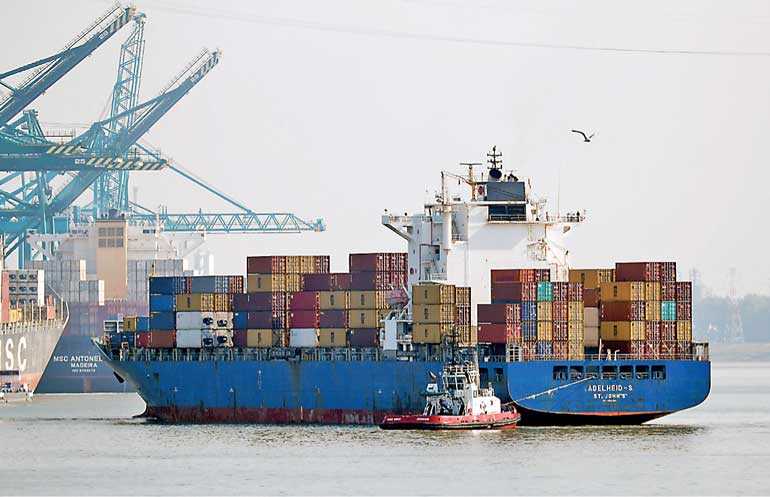Saturday Feb 28, 2026
Saturday Feb 28, 2026
Monday, 30 July 2018 00:00 - - {{hitsCtrl.values.hits}}

Container shipments in the combined eastbound Europe to the Middle East and South Asia trade performed well in the first quarter, rising by 5.2% year-on-year, according to Container Trade Statistics. But that aggregate rate hides two very different performances by the two destination markets, reports shipping analyst Drewry, highlighting CTS reports that inbound traffic to South Asia soared by 18% in the first quarter to reach approximately 410,000 TEUs, whereas Middle East imports declined by 2% to land at about 590,000 TEUs.
The same divergent story continued into April as Europe to Middle East traffic was down by 1.6%, versus a 22.3% jump for South Asia imports, Drewry noted.
But there was a much more balanced picture for the westbound trade, with exports from the Middle East and South Asia to Europe much more closely aligned than they were in the opposite direction. Middle East exports rose by 10% in the first quarter to nearly 225,000 TEUs while outbound shipments from South Asia increased by 8.2% to about 525,000 TEUs, Drewry highlighted.
On a rolling 12-month average basis, growth from Europe to South Asia topped 10% up to and including April, and 8% in the opposite direction. Meanwhile, container trade volumes from the Middle East to Europe rose 6.4% on a rolling 12-month average basis, but inbound trade was still “languishing at nearly -2%”, Drewry noted.
On a capacity side, capacity adjustments in this corridor have largely come from the addition of larger ships to existing services, Drewry noted, with only one new service start-up in recent months ? the ME6 service (three ships of between 2,500-4,300 TEUs) from Maersk Line, which connects the Spanish hub Algeciras with the Red Sea ports of Aqaba and Jeddah before calling at Port Said on the return leg.
MSC added two ships to its North Europe-Indian Ocean East Africa Express when it included new calls at the Baltic ports of Gdynia in Poland and Klaipeda in Lithuania. The extra ships cater for the longer transit times rather than add any new capacity to the trade, Drewry said.
On the pricing side, spot rates from Rotterdam to Nhava Sheva have been in decline for the past 12 months. According to Drewry’s Container Freight Rate Insight, 40ft container rates were $1,230 in May, which represented a drop of 30% on the same month one year ago when prices were at a recent high point. Rates from Jebel Ali to Rotterdam were priced at similar levels in May having been more stable over the past year, Drewry noted. It concluded: “Freight rates are likely to rise across the board for spot shippers as a consequence of higher fuel costs for carriers, but stronger fundamentals suggest the increases will be greater for South Asia.”